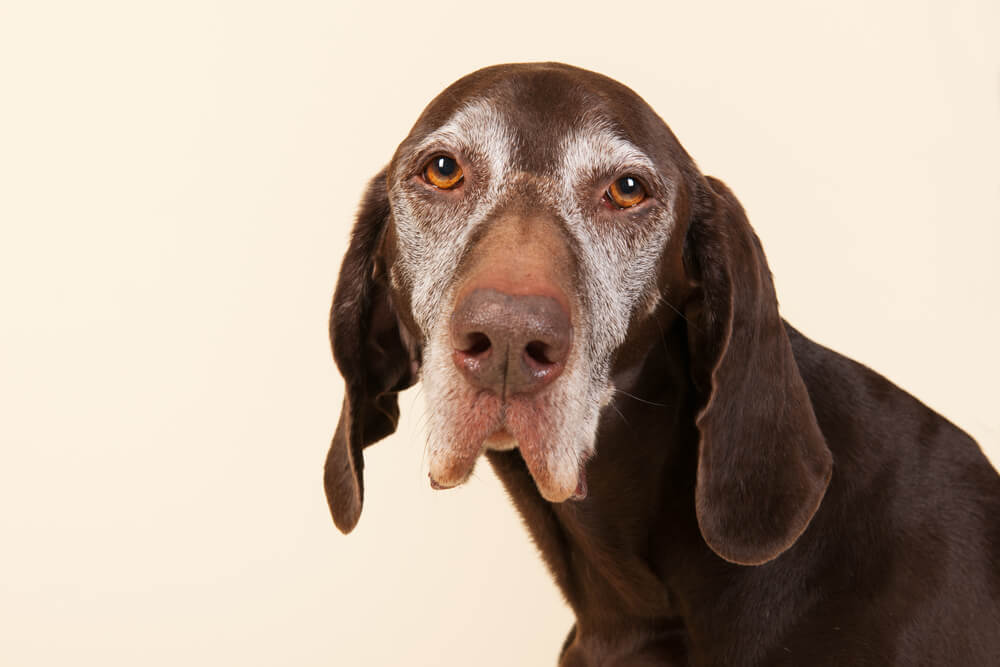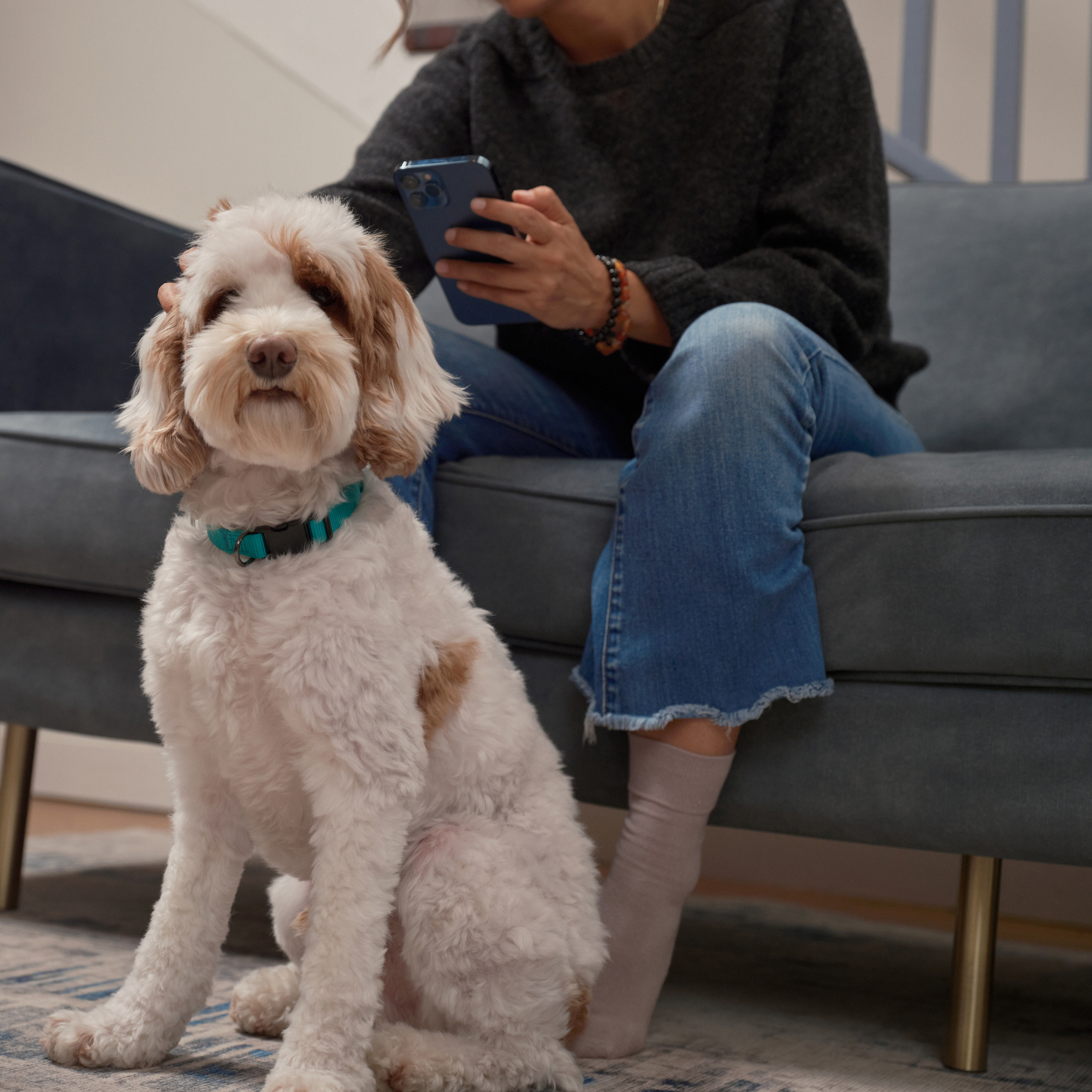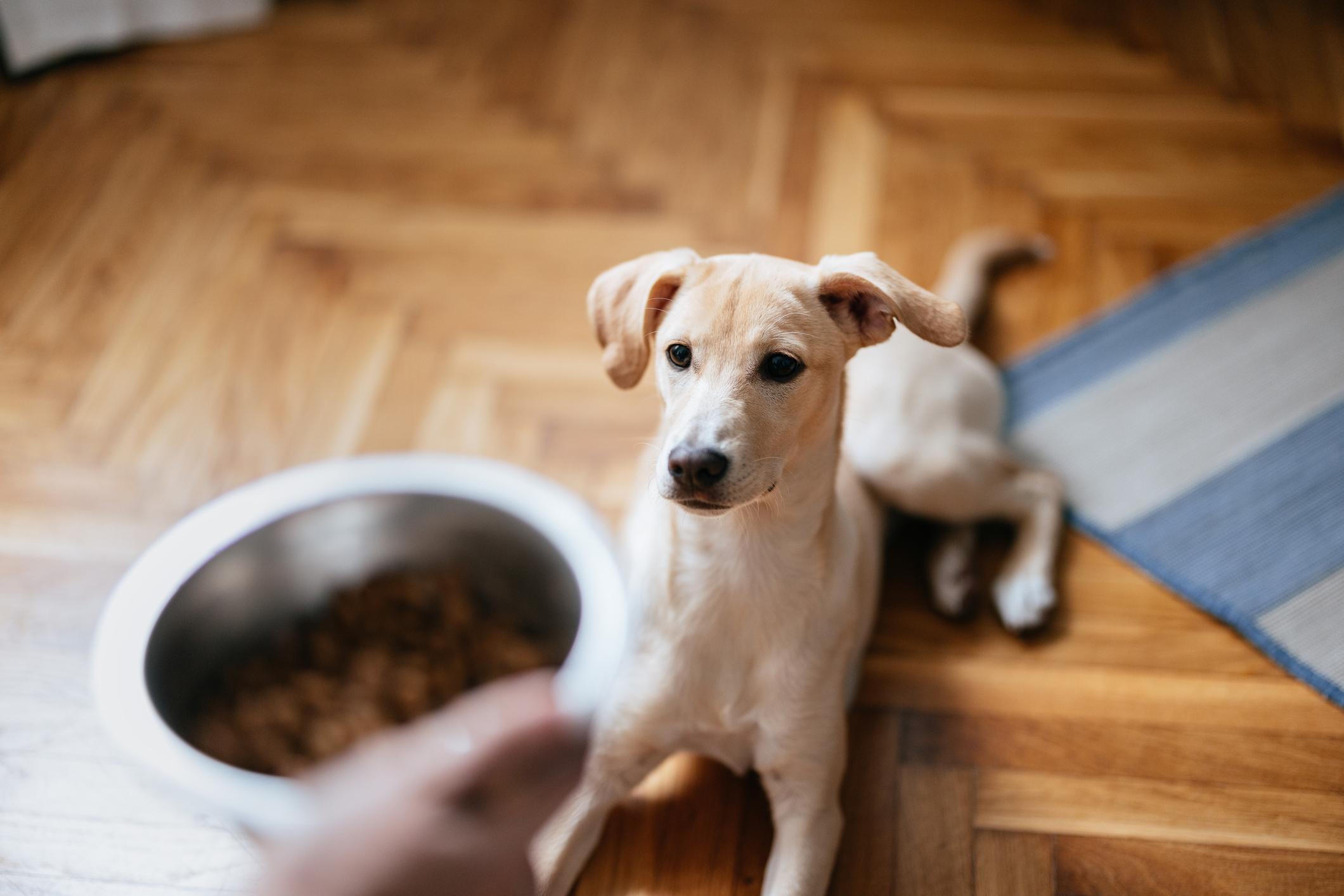Hey Ollie blog readers! We’re offering you an exclusive 60% OFF your starter box! Try now!
Aging is a difficult but inevitable part of your pet’s life. Knowing what to expect with an aging dog—and being able to catch early signs—can help give your pup a higher quality of life even as they graduate to senior status. The first step to coping with an aging dog is to acknowledge and accept that they are getting older. “I encounter a lot of pet owners who brush things off as ‘Oh, he’s just getting old,’ and they don’t want to do anything about it,” says Dr. Betsy Miller, DVM, MPH. “But there are definitely interventions that can help make them more comfortable as they age.”
Do any of these signs sound familiar? Start to take notice and consult with your veterinarian about what you can or should do to ease any of the symptoms of growing old.
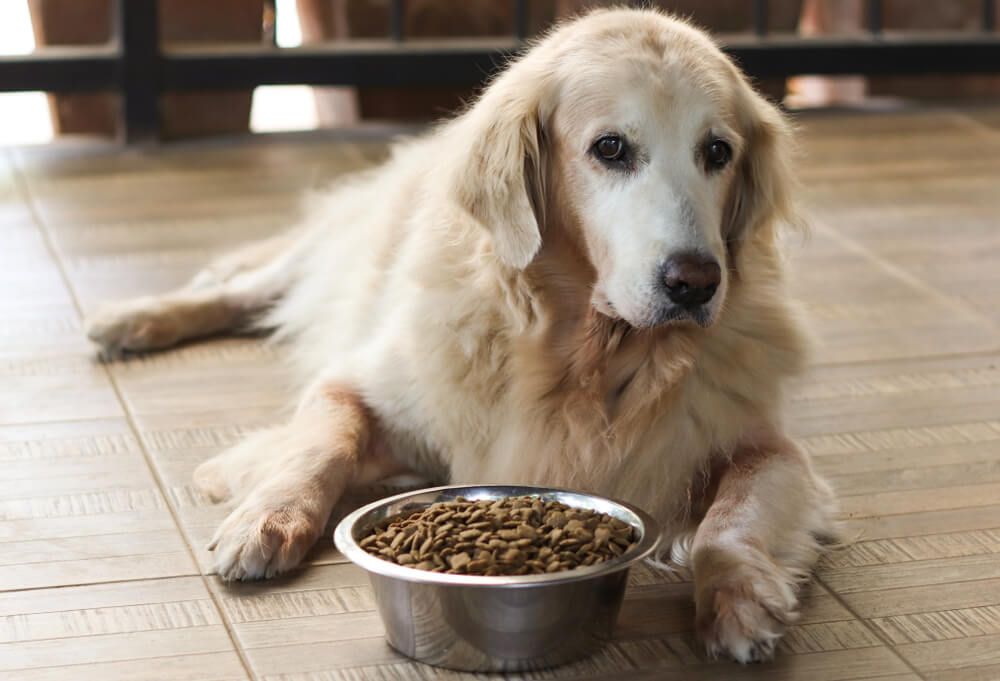
Sleeping—a lot
In the past when you came downstairs in the morning, your spritely pup started jumping off the walls to see you. But nowadays, he stays contently in his bed and seems to prefer snoozing over greeting you. Sleeping more is one of the most obvious signs that a dog is aging, given that they are generally more tired and have less energy than they used to. The excitement for exercise can also dwindle and they may start to prefer a long nap over a long walk.
Trouble or discomfort moving
If you notice your dog’s reluctance to go up and down stairs, a hesitation to jump up on things, or limping around after getting up from a nap—it could be a tell-tale sign that arthritis or joint problems have set in. “This is essentially what we call ‘trouble getting up,’” says Dr. Chris Hoppe, DVM. “Taking forever to get up or grunting are signs of being sore, and a lot of people don’t notice it until you make them think about it. It’s like he looks and sounds like an old man getting out of the chair.”
Although it’s very common in large-breed dogs, arthritis and joint pain can affect small breeds too. If you notice it early enough, though, your chances are better for alleviating your animal’s pain. “I would mention it to your vet early because there are things that can be introduced like joint supplements that can help strengthen the cartilage and help manage arthritis and pain management long-term,” Miller says. “Bring it up as soon as you notice changes to their normal activity levels.”
Decreased activity levels
Closely related to joint pain, older dogs get sore more quickly and they simply don’t need the same amount of exercise. Watch their body language as they’re doing an activity and tone it down accordingly. “You may have had a dog that could do 10 miles when it was younger, and now it’s only able to walk 2 or 3 miles,” Hoppe says. “If you’re walking your dog and he’s dragging behind you, it’s obviously time to turn around. It’s not just that they’re bored or not wanting to keep up—it’s just that they can’t.”
Be perceptive of how they act during, but especially after activity—often dogs can still be excited to get outside, but they pay for it the next day. If after a big weekend hike or frisbee-catching session they sleep for a whole day or start limping, it’s likely that the activity was too much for them and you need to back off on distance or time. Just don’t go too far to the other end of the spectrum—exercise is still important for weight management and keeping the joints lubricated.
Loss of appetite
Dogs can start to lose their sense of taste or smell as they age, making them less interested in food. Plus, with less exercise, they just don’t require as many calories. It’s normal and recommended to decrease overall calories to correspond with their diminished exercise regime. Ollie’s custom formulas take age, breed, and activity level into account, making it easy to feed your dog a calorically appropriate amount of food throughout their entire life. While younger dogs need energy- and protein-rich diets, older dogs need less overall to make it easy to metabolize as their organs are aging. If your dog severely loses his appetite, it’s a good idea to check with your vet—older dogs are more prone to teeth or mouth issues, and eating less could be the first sign that something is going on.
Cloudy eye lenses
You may notice that your pup’s eyes are looking a little more cloudy or grey as they get older. But don’t worry, Miller says, it’s a normal aging change called nuclear sclerosis, and it’s nothing to be worried about and nothing you can do to prevent this from happening. Pay attention at night as their vision may be affected—you may need to help them up or down the stairs or navigating around objects.
Changes in bathroom habits
If your house-trained pup starts going to the bathroom inside, he could be suffering from a urinary tract infection or kidney disease. Or if he seems uncomfortable and unable to get into the right position to go outside, it could be incontinence—a common old-age issue. There are medications that can help with these problems, so definitely call your veterinarian.
Mental behavior changes
Yes, even dogs can suffer from forgetfulness and cognitive decline. Similar to dementia in humans, dogs can start forgetting the training commands they once knew or seem easily confused or disoriented in familiar territory. Patience is the key, here, and your vet can more properly diagnosis this cognitive issue and recommend how to best navigate it.
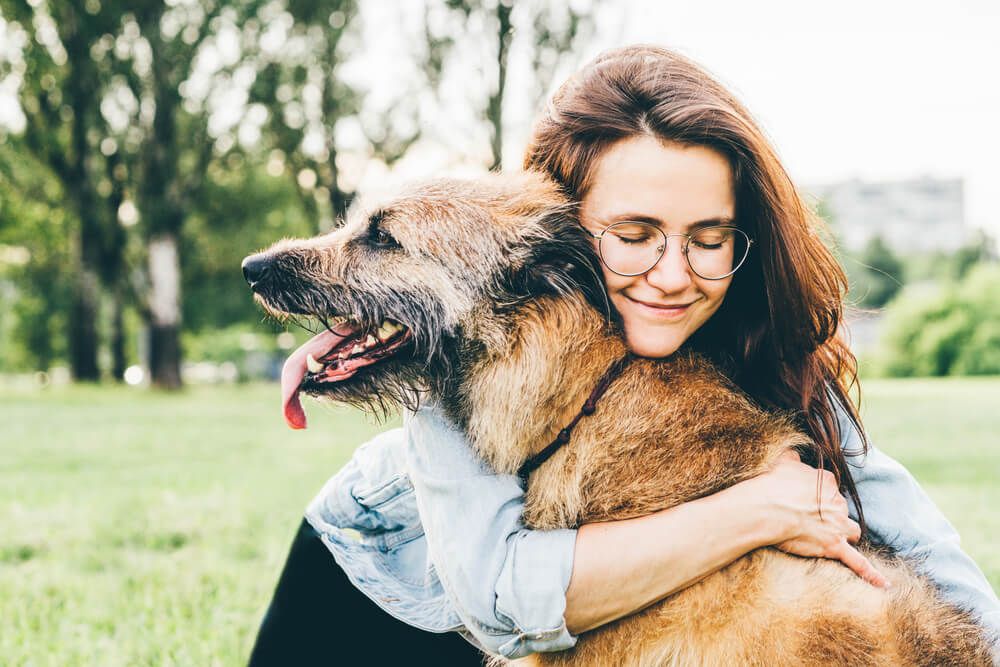
Three things you can do to help an aging dog:
- Gradually introduce changes to avoid anxiousness or confusion.“Don’t make huge changes in the house without sort of letting them be a part of it,” advises Hoppe. “If you’re redoing your living room, don’t make those drastic changes overnight and expect your dog to figure it out if they’ve learned where the furniture is.”
- Maintain a healthy diet. The majority of dogs’ health issues can be exacerbated by being overweight, so adjusting their diet is incredibly important as they age. Using a custom formula like Ollie can ensure that your dog is getting the appropriate nutrients for his age and breed, and it can take the guesswork out of “how much?” for you.
- Increase vet visits to twice a year.
For most of a dog’s life, a veterinarian may recommend a once-per-year visit. But once they’ve hit senior status—which can range from 10–11 years for small dogs or 7 for large dogs—a twice-a-year exam is recommended. “Things might pop up quicker with more frequent vet visits, which is a good idea for the older dogs,” Miller says.
The Ollie blog is devoted to helping pet parents lead healthier lives with their pups. If you want to learn more about our fresh, human-grade food, check out MyOllie.com.
Tagged As:

The nutrition your dog needs,
the food they want.

Enjoying our articles? Subscribe our Newsletters and get new articles directly to your inbox
You might also like
18 August 2025
9 MINS READ
Nourish Skin from Within: Fresh Dog Diet Benefits
If your dog is constantly scratching, licking their paws, or has a dull, flaky coat, it’s not just frustrating—it could be a sign that something’s off in their diet. Skin and coat issues are som…
by Ollie Pets
12 August 2025
5 MINS READ
Top 8 Allergens Hiding in Your Dog’s Bowl
As pup parents, we never want to see our dogs uncomfortable. When it comes to itching, swelling, and upset stomachs, the culprit may be in their bowl. Understanding the most common allergens and t…
by Ollie Pets
11 August 2025
5 MINS READ
Not all Processing Is Equal: What’s Really in Your Pet’s Bowl?
As pet parents, we know how important it is that our dogs live long, healthy, and happy lives. This is why at Ollie, we focus so much on what goes into their bowls. But did you know there may be s…
